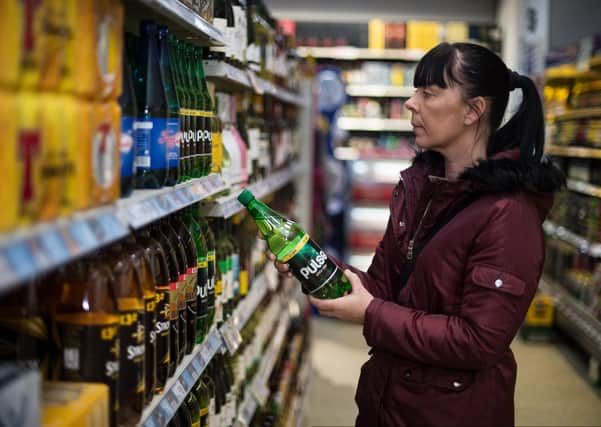Brexit Bill could cost Holyrood powers over minimum alcohol pricing


The controversial UK Internal Market Bill would render many of Holyrood’s devolved powers “redundant”, according to one of the country’s top European law experts.
The warning comes as a new nationwide survey finds half of Scots support the measure aimed at addressing the country’s long-established issues with alcohol, while barely a quarter oppose it.
Advertisement
Hide AdAdvertisement
Hide AdProfessor Michael Dougan, from Liverpool University, has warned that the legislation will magnify England’s “economic and constitutional dominance” in the UK unless it is radically altered.
The Bill has already proved controversial after the UK Government admitted it will breach international law, while the devolved administrations say it is a “power grab” on devolution.
Professor Dougan, who will appear before Holyrood’s Constitution committee this week warns that the measures warns that the changes could spell bad news for devolution.
“The bill’s planned regime would positively magnify England’s inherent advantages yet further and risk rendering the exercise of many devolved powers redundant in practice,” he states in a submission to the committee.
“After all: English choices would be able to produce their full effects within Scotland and Wales, on a scale that could simply overwhelm the latter’s own preferences.”
He adds: “The real problem is the sheer empirical fact that, without proper constraints and processes, a strong UKIM system will magnify England’s existing economic and constitutional dominance yet further – and do so to the clear cost of the existing devolution settlements.”
The academic looks at a number of specific examples, including minimum pricing and any change to the current level of 50p per unit.
He warns this may fall under the “mutual recognition” provisions of the new laws and would not apply to alcohol products from England being sold north of the Border.
Advertisement
Hide AdAdvertisement
Hide AdHe adds: “The basic effect of the UKIM would be to act as a powerful disincentive for Scotland to change its existing rules on minimum alcohol pricing, since any new rules might end up applying only to domestic goods, not English imports – and given the nature of the UK economy, that would effectively destroy the functioning of Scotland’s entire regulatory system.”
Rules governing packaging would also be subject the same “mutual recognition” requirements. So any move by Scotland to introduce a measure such as a ban on single use plastic packaging would effectively be rendered “inoperable.”
Minimum unit pricing came into effect in 2018, the measure meant each unit of alcohol must cost at least 50p in a bid to raise the price of high-strength drinks to tackle alcoholism north of the border.
Analysis by Public Health Scotland of the 2019 Scottish social attitudes survey found 49.8 per cent of the 1,022 people asked supported the measure, compared to 27.6 per cent who did not.
Another study released in June showed alcohol sales had dropped by 5 per cent since the implementation of the policy.
Dr Karl Ferguson, the public health intelligence adviser at Public Health Scotland, said: “These findings from the Scottish social attitudes survey show the public is generally more in favour of MUP than against, and that attitudes appear to have grown more favourable over the timeframe during which the policy was implemented.”
Public perception of the legislation has changed from 2015 when 41.3 per cent of 1,288 people were in favour and 33.4 per cent opposed, the figures show.
Comments
Want to join the conversation? Please or to comment on this article.